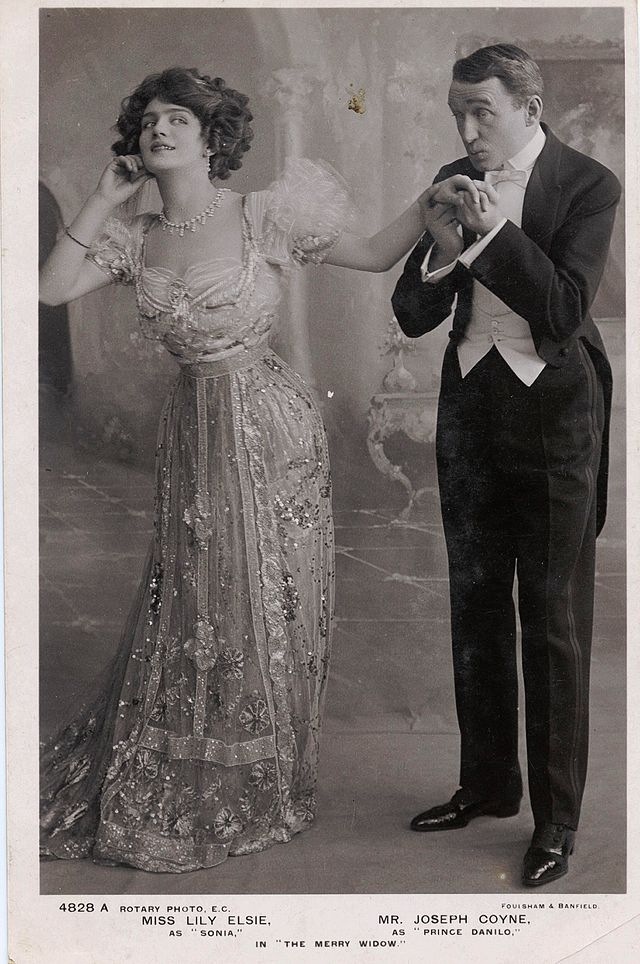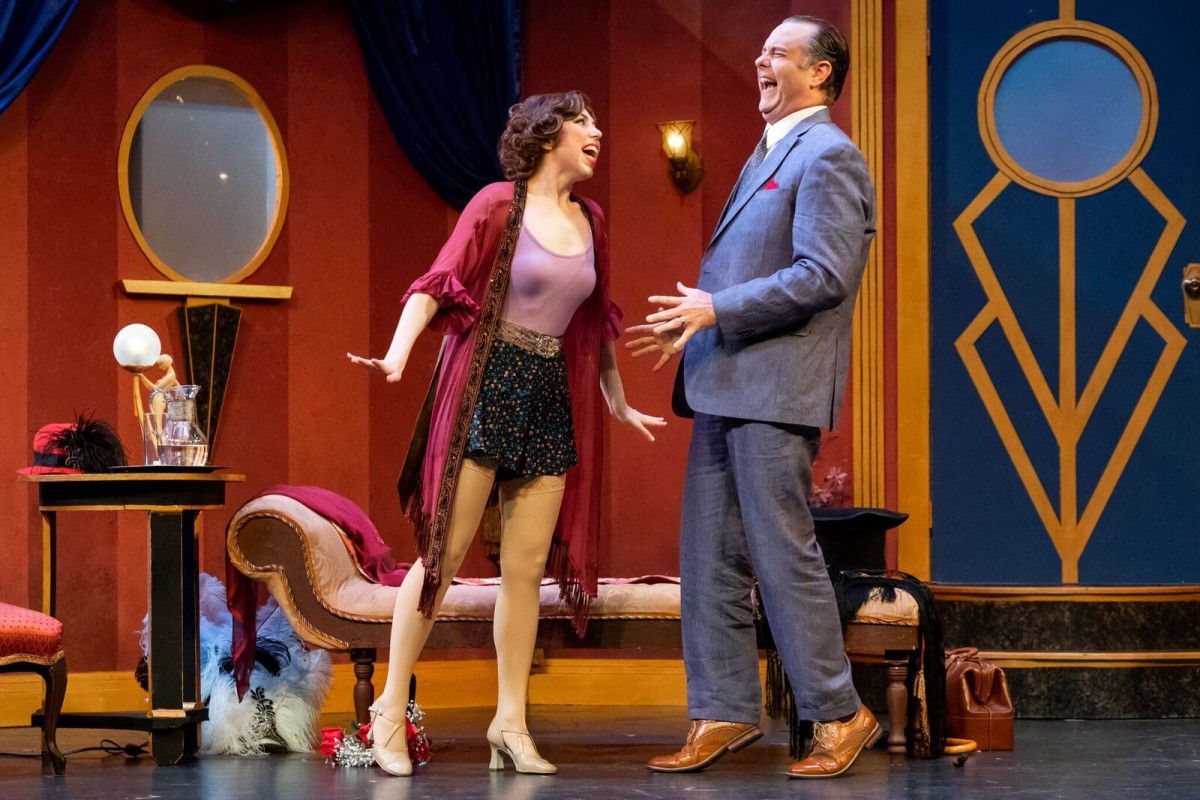Michael D. Miller / Kevin Clarke
Operetta Foundation / Operetta Research Center
24 July, 2020
A performance of Lehár’s Clo-Clo from the Ohio Light Opera – filmed live at the theater in Wooster – has been released on DVD by the Operetta Foundation. It’s a production by Steven A. Daigle in English (based on a new translation by Mr. Daigle), and it’s conducted by Steven Byess, i.e. the OLO standard team. The title role is taken by Caitlin Ruddy, Benjamin Dutton sings Maxime de la Vallé. Michael D. Miller has summed up what makes Cloclo unique. He allowed the Operetta Research Center to re-print his account.

The DVD cover of “Clo-Clo” filmed at Ohio Light Opera in 2018. (Photo: Operetta Archives)
With the deaths, in the final years of the nineteenth century, of the four leading composers of the “golden age of Viennese operetta”—Johann Strauss, Franz von Suppé, Karl Millöcker, and Karl Zeller—it looked as if operetta in Vienna had run its course. When, in 1905, Hungarian-born Franz Lehár submitted his score for Die lustige Witwe to the Theater an der Wien, it was accepted, but with the expectation that it would be nothing more than a temporary schedule filler following the unexpected early closing of Leo Fall’s opera Der Rebell. The unparalleled success of The Merry Widow across the globe jump-started the so-called “silver age of Viennese operetta” and placed Lehár in the forefront of the city’s purveyors of operetta.

Lily Elsie and Joseph Coyne in “The Merry Widow.” In its English adaptation by Basil Hood, with lyrics by Adrian Ross, the show became a sensation at Daly’s Theatre in London, opening on 8 June 1907.
Over the next two decades, he penned more than two dozen works for Vienna, including titles still well known—Der Graf von Luxemburg, Zigeunerliebe, and Eva—and some all but forgotten: Der Mann mit den drei Frauen, Der Sterngucker, and Die blaue Mazur.
Toward the end of the teen decade, facing strong competition from Emmerich Kálmán, Leo Fall, and Oscar Straus, Lehár’s star had begun to fade. But, as fate would have it, star operatic tenor Richard Tauber had a love for operetta and, in 1920-21, essayed the role of Józsi in Lehár’s 1910 operetta Zigeunerliebe.
In 1922, at the Theater an der Wien, he took over the lead tenor role in the initial production of Lehár’s Frasquita. Singer and composer began a friendship that would last until their deaths in 1948. Lehár, at the beginning of his career, had set his sights on opera composition and longed, throughout his operetta years, to take the genre to loftier heights.
Tauber’s rich voice was the perfect vehicle. Beginning with Paganini in 1925, and with the tenor always in mind, Lehár composed six lushly romantic operettas, all but one with unhappy endings: Der Zarewitsch, Friederike, Das Land des Lächelns, Schön ist die Welt, and Giuditta. But … before embarking on this decade-long journey, he took one last fling at the lighthearted, pre-war stylings of Die lustige Witwe.
This was the time at which George Gershwin was starting to jazz-up Broadway, and Maurice Yvain was doing the same for Paris. Lehár biographer Stefan Frey reports of a 1923 interview of the composer by Cleveland Plain Dealer drama critic William F. McDermott, who asked Lehár for his opinion on jazz. “Good! Good! Very good! … As a matter of fact, I am writing some jazz myself … a new operetta, especially for America. The world will be astonished.”
Lehár, obviously with an eye on the international market, infused the score of Cloclo with a panoply of 20th-century dance rhythms—foxtrot, shimmy, blues, java, tango, onestep—that played out side-by-side with the more traditional waltzes and marches.
The show opened on March 8, 1924 at Vienna’s Bürgertheater for a 12-week run. A year and a half later, the Johann Strauss-Theater mounted a new production of the work, retitled CloClo, in which the composer, doubling down on his commitment to jazz, replaced the glorious waltz duet for the leading couple with a sultry foxtrot, “Come, the Night Belongs to Sin.” (To read Kurt Gänzl’s essay on Clo-Clo click here.)

Scene from Steven Daigle’s production of Léhar’s “Clo-Clo” at Ohio Light Opera, 2018. (Photo: Matt Dilyard)
London welcomed Clo-Clo for a 95-performance run in 1925, but America did not see the work until a production by the Chicago Folks Operetta in 2009 and Ohio Light Opera’s full staging in 2018. The 1935 Austrian film Die ganze Welt dreht sich um Liebe (The World’s in Love), starring Marta Eggerth, made use of several tunes from the operetta.
To order the DVD via the Operetta Foundation website, click here.

Very nice presentation Mike! Looking forward to watching the DVD!
This is a very nice occasion to enjoy an unusual Lehar work.
Lehar is indeed a maestro full of new musical ideas and here you are indeed kept by his surprises aided by a formidable cast… oh yes,there are some awful moments, but these do not make any real offense to the performance.. Ohio Light Opera always deserves to be acclaimed for their keeping operettas alive without sucker “fantasie” or useless disagreeable inventions.